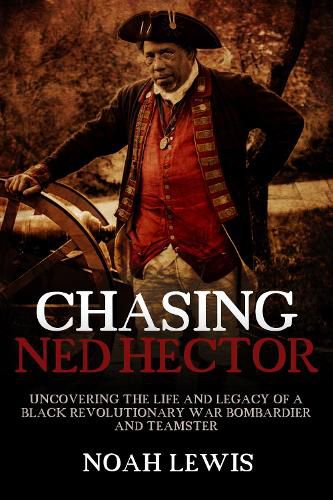Readings Newsletter
Become a Readings Member to make your shopping experience even easier.
Sign in or sign up for free!
You’re not far away from qualifying for FREE standard shipping within Australia
You’ve qualified for FREE standard shipping within Australia
The cart is loading…






A young white boy comes home from watching a reenactment battle at the Brandywine battlefield, imagining what it must have been like to be George Washington. His Black friend returns with no such thoughts. From what he could see, people like him played no part in the fight for American independence. In Chasing Edward "Ned" Hector, Noah Lewis battles the toocommon assumption that all colonial Black people were poor and enslaved and played only the part of manual labor in America's fight for independence. On the contrary, the argument could be made that without the contribution of the Black soldier, America might not have won the American Revolution at all.
Edward Hector was a Black soldier serving as a bombardier, part of a cannon team, and a teamster, serving Proctor's Pennsylvania Artillery. As a bombardier, he fought with an elite military unit, the artillery. As an artillery teamster, Ned transported gunpowder, ammunition, and cannons, which placed him in battle. He fought in the battles of Brandywine and Germantown. He was considered a hero for courageously saving his horses, wagons, and supplies at Brandywine despite being overrun by the Redcoats and ordered to abandon them and retreat. Despite his service, all three times he submits a petition, he was denied a pension. Eventually, the Pennsylvania Congress granted him a onetime payment of $40. Edward Hector was so well regarded in his home community of Conshohocken that 16 years after his death, they named a street after him, an amazing honor given attitudes towards Black people around 1850.
Through the eyes of Edward Hector, Noah Lewis explores how diverse colonial Black people were and how they were affected and shaped by their culture, politics, familial relationships, and environment, and invites all Americans to embrace colonial AfricanAmerican history as their own.
$9.00 standard shipping within Australia
FREE standard shipping within Australia for orders over $100.00
Express & International shipping calculated at checkout
A young white boy comes home from watching a reenactment battle at the Brandywine battlefield, imagining what it must have been like to be George Washington. His Black friend returns with no such thoughts. From what he could see, people like him played no part in the fight for American independence. In Chasing Edward "Ned" Hector, Noah Lewis battles the toocommon assumption that all colonial Black people were poor and enslaved and played only the part of manual labor in America's fight for independence. On the contrary, the argument could be made that without the contribution of the Black soldier, America might not have won the American Revolution at all.
Edward Hector was a Black soldier serving as a bombardier, part of a cannon team, and a teamster, serving Proctor's Pennsylvania Artillery. As a bombardier, he fought with an elite military unit, the artillery. As an artillery teamster, Ned transported gunpowder, ammunition, and cannons, which placed him in battle. He fought in the battles of Brandywine and Germantown. He was considered a hero for courageously saving his horses, wagons, and supplies at Brandywine despite being overrun by the Redcoats and ordered to abandon them and retreat. Despite his service, all three times he submits a petition, he was denied a pension. Eventually, the Pennsylvania Congress granted him a onetime payment of $40. Edward Hector was so well regarded in his home community of Conshohocken that 16 years after his death, they named a street after him, an amazing honor given attitudes towards Black people around 1850.
Through the eyes of Edward Hector, Noah Lewis explores how diverse colonial Black people were and how they were affected and shaped by their culture, politics, familial relationships, and environment, and invites all Americans to embrace colonial AfricanAmerican history as their own.